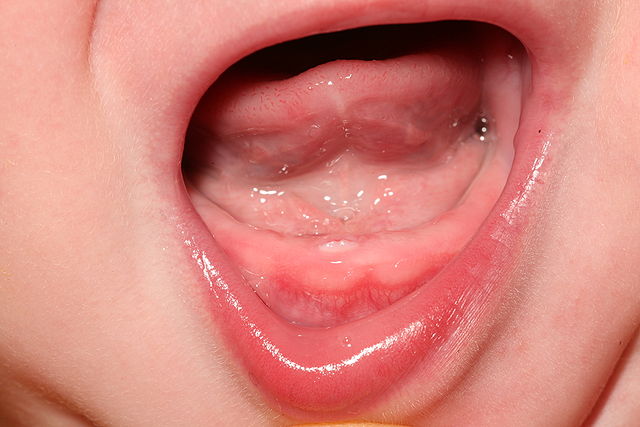- Teething Symptoms: What to Expect and How to Manage
- What Are the Signs of Teething?
- When Does Teething Start?
- Managing Teething Discomfort
- How Long Does Teething Last?
- Are There Variations in Teething Symptoms?
- When to Consult a Doctor
- Conclusion
Teething Symptoms: What to Expect and How to Manage
Teething is a natural and essential part of a baby’s growth, but it often brings discomfort and distress for both the baby and parents. Recognizing and managing teething symptoms early can make the process smoother. Typically starting between 4 to 7 months, the process continues until a baby is about 3 years old. During this time, it’s common to notice various physical signs associated with teething.
What Are the Signs of Teething?
When a baby’s teeth start to push through their gums, several symptoms for teething can appear. The most noticeable signs include:
- Drooling: Increased salivation often begins a few weeks before a tooth emerges.
- Irritability: Babies tend to get fussy due to discomfort in their gums.
- Gum Swelling and Sensitivity: The gums might appear red and swollen, especially near the erupting tooth.
- Chewing on Objects: Babies instinctively chew on toys or fingers to relieve gum pressure.
- Difficulty Sleeping: Due to discomfort, some babies might have trouble sleeping or wake up more frequently during the night.
In addition to these symptoms, parents might also notice fever, diarrhea, and a reduced appetite. However, it’s important to understand that while these are commonly associated with teething, they could also indicate other health issues. It’s advisable to consult with a pediatrician if these symptoms are severe.
When Does Teething Start?
When do babies start teething is a common question among new parents. Teething generally begins around the age of 6 months, but it’s not unusual for it to start as early as 3 months or as late as 12 months. The order in which teeth emerge is relatively predictable, with the bottom front teeth (central incisors) appearing first, followed by the top front teeth.
Managing Teething Discomfort
There are several strategies parents can use to help alleviate teething pain. Over-the-counter remedies, such as teething gels, have been used by many parents. However, it’s essential to be cautious with such products and consult a healthcare provider before administering them to your baby.
Non-medicated Teething Relief
For parents who prefer non-pharmacological approaches, some simple solutions can be effective:
- Teething Rings: Refrigerated teething rings can provide relief by numbing the baby’s gums.
- Cold Washcloth: Letting babies chew on a cold washcloth can offer soothing relief for their inflamed gums.
- Gentle Gum Massage: Using a clean finger to gently rub the gums can ease discomfort.
Studies suggest that non-pharmacological treatments, such as homeopathic remedies or natural gels containing chamomile, may provide relief with minimal side effects.
How Long Does Teething Last?
Teething gums can be sensitive for a few days before a tooth erupts, but the discomfort usually subsides once the tooth has fully emerged. While each tooth takes around 8 days to fully emerge, teething episodes come and go until all the primary teeth are in place, which typically occurs by the time the child is 3 years old.
Are There Variations in Teething Symptoms?
Yes, babies experience signs of teething differently. Some may go through the process with minimal symptoms, while others may show intense discomfort, fever, or disrupted sleep patterns. Factors like genetics, overall health, and feeding practices, such as breastfeeding, may influence how a baby experiences teething.
According to a study, exclusively breastfed babies often exhibit fewer teething symptoms, such as drooling or coughing, compared to formula-fed babies. This can be attributed to the immunity-boosting properties of breast milk.
When to Consult a Doctor
If your baby’s teething symptoms are severe or persist for an extended period, it’s essential to consult a doctor. While mild fever and irritability can be normal, high fever, vomiting, or severe diarrhea are not typical signs of teething and should be addressed by a healthcare professional.
Conclusion
Teething can be a challenging phase for both babies and parents, but understanding the teething symptoms and knowing how to manage them can make the process more bearable. With the right care, your baby will be comfortable and on their way to a healthy smile.
The following post may interest you
Babies’ First Sounds (Cooing): Understanding Cooing
Source
Teething disturbances; prevalence of objective manifestations in children under age 4 months to 36 months:
https://www.ncbi.nlm.nih.gov/pmc/articles/PMC3476083
Exclusive breastfeeding and its relevance to infant teething:
https://www.ajol.info/index.php/ndj/article/view/63184
Longitudinal study of symptoms associated with teething: Prevalence and mothers’ practices:
https://www.sciencedirect.com/science/article/pii/S0031393916301688
Efficacy of treatments used to relieve signs and symptoms associated with teething: a systematic review
https://www.scielo.br/j/bor/a/3HcVmD5x6LxmSdmDXhzB9Dg
Early-life factors affect risk of pain and fever in infants during teething periods:
https://link.springer.com/article/10.1007/s00784-015-1658-2
image: By Daniel Schwen – Own work, CC BY-SA 4.0, https://commons.wikimedia.org/w/index.php?curid=7718046

